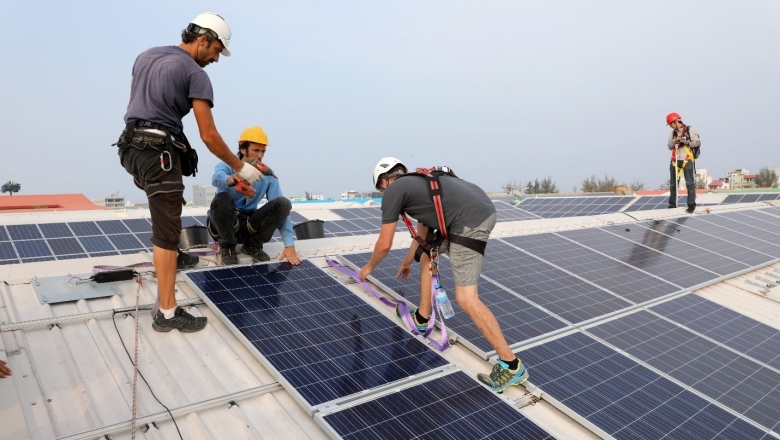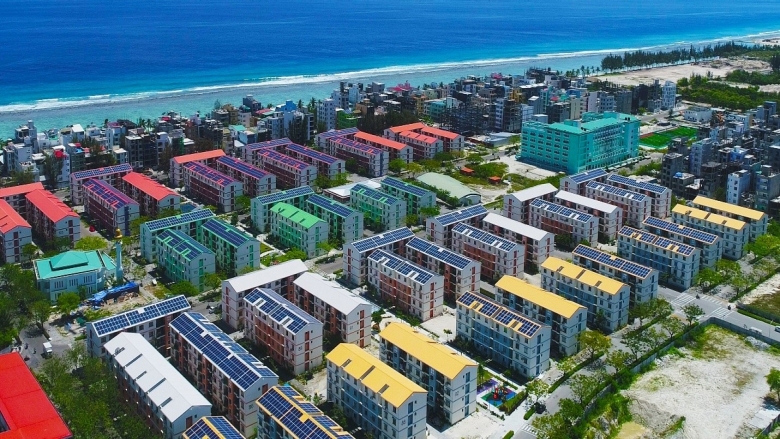Challenge
The Maldives, a collection of low-lying atolls, is highly vulnerable to the impact of extreme weather and climate change and has relied on expensive fuel imports for its energy needs. In 2019, it imported over 700,000 metric tons of fuel at the cost of US$465 million, equivalent to 8.3 percent of the gross national product (GDP). This makes the macroeconomy particularly vulnerable to any external crises, such as the 2004 Indian Ocean Tsunami or COVID-19. The COVID-19 pandemic has led to an estimated 20.5 percent contraction in real GDP in 2020.
Solar technology is revolutionizing the global energy sector, but this needs large amounts of private sector funding to be unlocked to complement the limited available public financing. Most developing countries still lack a pipeline of bankable solar projects for consideration by the private sector, and it was essential to establish a program of risk mitigation to attract private investment. The challenges facing such projects include integrating solar with existing power sources on the grid, off-taker risk and weak procurement and planning capacity.
Approach
The ASPIRE project set out to create the confidence needed for private sector companies to invest in the Maldives renewable energy sector. It provided significant technical assistance and capacity building to the Government of Maldives (GoM) and has helped streamline the procurement and implementation of solar projects by formulating template contracts and guidelines. This approach had helped in reducing the cost of electricity through a bidding process.
The project is in collaboration with the Sustainable Renewables Risk Mitigation Initiative (SRMI), which had been set up by the World Bank's Energy Sector Management Assistance Program (ESMAP) in partnership with Agence Française de Développement (AFD), the International Renewable Energy Agency (IRENA) and the International Solar Alliance (ISA). This approach ensures that even in light of an economic downturn, such as the current pandemic, this combination of risk-mitigation strategies has succeeded in reassuring private investors that the Maldives is open for business.

